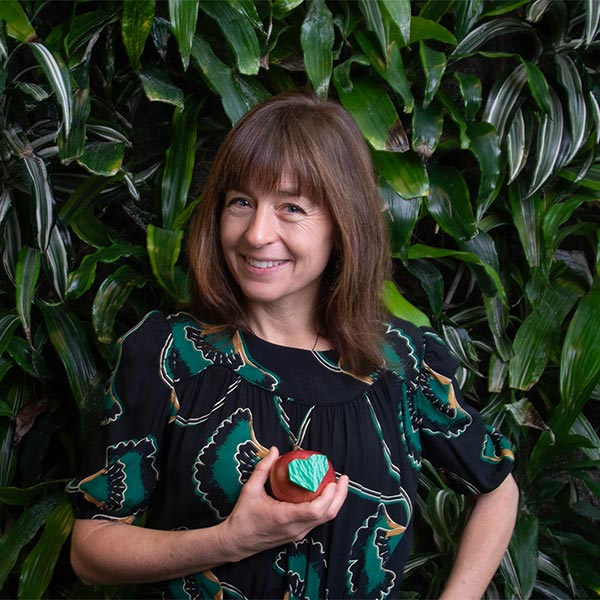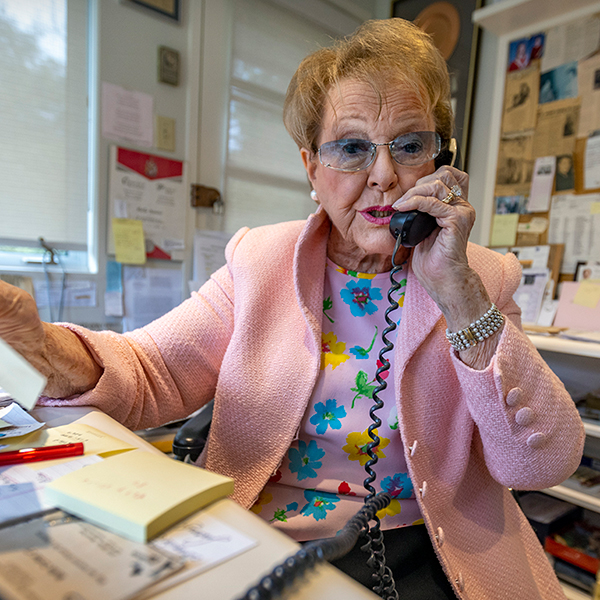When Montreal’s restaurants and bars shut down in mid-March due to the coronavirus pandemic, thousands of hospitality staff were temporarily laid off. Kaitlin Doucette, BA’13, wine director for the Olive & Gourmando restaurant group, was one of them.
After hearing about an emergency relief fund for restaurant workers in New York, Doucette teamed up with Jessica Cytryn, BCL/LLB’19, a former restaurant server now working in food and wine law, to launch the Montreal Restaurant Workers Relief Fund (MRWRF) in mid-March.
“Many of my colleagues – servers, dishwashers, hostesses, cooks – work paycheque to paycheque to support their families; this not a workforce rife with privilege,” says Doucette. “A lot of them are not protected and work under the table, so they’re not covered by any government aid.”
The MRWRF provides immediate financial assistance via e-transfers to restaurant employees in need in increments of $50, $100 or $150 based on applicants’ self-identified needs, explains Cytryn. The GoFundMe campaign has raised close to $75,000 from 614 donors, plus another $25,000 from ongoing corporate partnerships.
“Initially, I was overly optimistic and wildly ignorant about how many people were in such dire situations,” says Cytryn. “When Kaitlin and I started this, I set the GoFundMe limit at $5,000; my concern was that there wasn’t going to be an actual need for it. And I was very, very wrong. I’m very surprised that we’re now handling a six figure sum of money and have hundreds and hundreds of people who are waiting for us to help them. I didn’t expect this at all.”
The fund’s application review team asks for proof that applicants work in a restaurant, such as a pay stub. Once verified, funds are transferred electronically. So far, more than 360 applicants have received direct aid. The MRWRF recently opened its next round of applications, and Doucette predicts they’ll be able to help about 200 people.
“We’ll keep things open on a rolling basis, dealing with partnerships and managing our cash flow,” says Doucette, noting that a baker’s dozen of other volunteers tied to the restaurant industry make up the core of the MRWRF team, and another 30 help out as needed. “Restaurants are like families, and I’m filled with such a sense of gratitude and solidarity towards my industry.”
Food journalist Amie Watson, MMus’09, also wanted to help MRWRF. Her newly-launched pay-what-you-can e-cookbook, Quarantine Cooking, has raised over $1,500 for the fund, and features more than 50 gluten-free and dairy-free recipes designed to make use of pantry staples.
“Instead of just donating to their cause, I wanted to contribute my recipes and help the restaurant community while being useful to people at home,” says Watson, a regular Montreal Gazette contributor who has been blogging about food for 10 years.
“I look at my cupboards, and get inspired and creative, so I wanted to pass those ideas and excitement on in the cookbook. Hopefully, people stuck at home will learn to cook with what they have, like lentil and spices, and try making things they never had time to try before, like homemade pasta, jambalaya or Vietnamese chicken pho’ ga soup.”
Cytryn and Doucette have received emails from applicants who said they hadn’t eaten in days, or are unable to afford their medication.
“It’s been heart-wrenching, but the positive response to this fund and this crisis has shown me how special the connection is between Montreal patrons, the people who work in restaurants and the people who own and operate them,” says Cytryn.
Then there’s the generosity of the recipients themselves. After sending out an e-transfer last week, Cytryn heard from a young woman who had a surprising request.
“She said, ‘I got my government cheque yesterday, so give this to someone else who can use it’,” she recalls. “Those moments are the most heartwarming ones.”
Doucette says they’ll keep the fund going as long as people need it, and any leftover funds after the COVID-19 crisis be donated to Tablée des Chefs, which develops culinary education for youth and feeds people in need.
“We’ve now become a non-profit, so after the crisis is over, we’ll keep this going as an advocacy group for worker equity in the restaurant domain,” says Doucette. “I’m deeply passionate about this thanks to my time at McGill, where I worked in cultural studies, talking about marginalized folks. Honestly, the sky’s the limit.”


